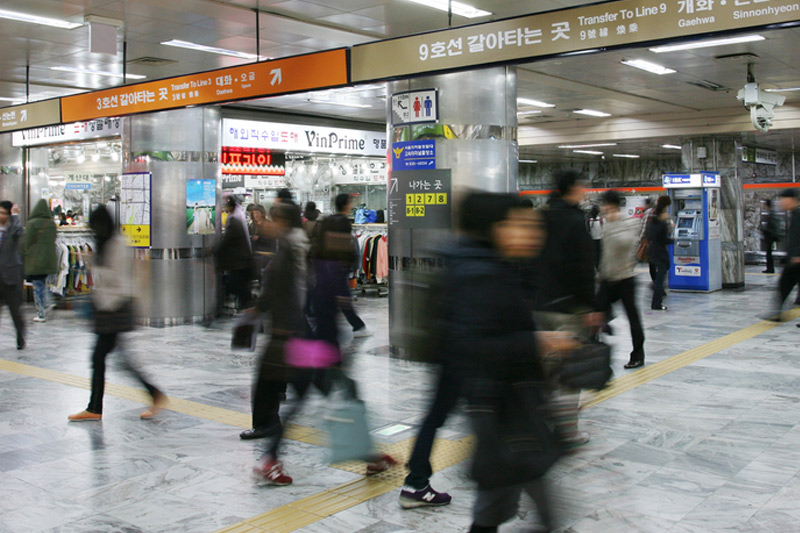(Bloomberg) -- Lee Jong-chul, a 57-year-old truck driver who lives just south of Seoul, says it took little more than a minute to access his 400,000 won ($330) cash handout from the South Korean government earlier this month.
For 2.8 million Korean households it didn’t take any time at all: the money was automatically wired to their bank accounts without even an application.
In nearby Japan, hundreds of Tokyo residents trying to process their claims for 100,000 yen ($930) handouts had to line up for hours outside a government office in Setagaya. Many of them were queuing because there was no other way to get their passwords reset for online applications they were supposed to complete at home.
Like many people in Japan, 41-year-old hairdresser Emiko Sato, has reached the conclusion that it’s less hassle simply to wait for the paperwork to arrive by snail mail.
“It’s really dawned on me how outdated government policy and administration is in Japan,” said Sato, by phone from Saitama, north of Tokyo, where she lives as a single mother with two small children.
The contrasting speed and efficiency of distributing virus relief to people in need in Japan and South Korea come despite a remarkably similar trajectory in putting together the funding for the handouts in the two Northeast Asia rivals. That difference reveals a nimbler and more tech-savvy administrative infrastructure in Korea more suited to swift action than the lengthy paper-centric approach of Japan.
It took Prime Minister Shinzo Abe in Japan and President Moon Jae-in in Korea about a month each to get their extra budgets approved on the same day: April 30. During that time, both leaders buckled to the populist idea of giving handouts to everyone rather than those most in need.
Japan Scrambles to Get $930 to All Who Apply as Virus Spreads
In both countries, some local communities acted faster than the central government to dole out cash.
The similarities appear to end there.
In South Korea, 80% of households had received handouts as of May 19, according to a daily tally by the Ministry of the Interior and Safety. The government runs a dedicated website on the program, offering quick search links that show how much families can receive, and ways to apply -- either online, via websites or credit card apps, or in person at banks or municipal offices.
“I’m really happy we’re getting this cash, because we’re all going to go bankrupt otherwise,” said Lee. The Korean trucker has worked only twice in the past month, driving his 15-ton dumpster to transport sand and stones to construction sites.
South Korea’s centralized administrative capability and a national identification system are key factors behind its speedy delivery of the handouts. The identification number enables the government to access personal records, saving South Koreans from the heavy paperwork required in Japan to verify basic information such as place of residence.
Smartphones are also playing a prominent role for South Korea, which has one of the fastest broadband and wireless networks in the world and is home to technology giants like Samsung (LON:0593xq) Electronics (OTC:SSNLF) Co.
Each time Lee uses his credit card, his mobile app pings him an update of how much of the cash handout remains. To encourage him to spend the cash instead of saving it, the app also reminds him he has a three-month deadline to use it or lose it.
Waiting Game
In Japan, people want to know when they’ll get the money in the first place.
As of May 19, 72% of Japan’s municipalities had started mailing out application forms but only 19% had started to actually deposit money into bank accounts from postal claims, according to the internal affairs ministry. Around a third of local governments had started distributing handouts in response to online claims as of May 14, the ministry said.
The mail-based approach is dominating largely because only 16% of Japan’s 127 million population have obtained a card and PIN code to go with their national identification number needed for online applications.
Obtaining the card itself takes about a month, and if you get the PIN number wrong multiple times, you get locked out of the process and have to physically go to a government office to unlock it.
Nami Kobayashi, a 39-year-old freelancer who runs a flower shop and music school in Osaka, personally told Abe how strained her budget was after the government invited her to attend a hearing with him and other cabinet ministers and 10 freelancers in March.
Even she is still waiting for financial help from the government.
Kobayashi tried to apply for the 100,000 yen online, but the system crashed due to heavy traffic and she is now waiting for an application form in the mail.
“Nothing has come my way and I’m almost giving up. It’s like, whatever,” she said.
©2020 Bloomberg L.P.
